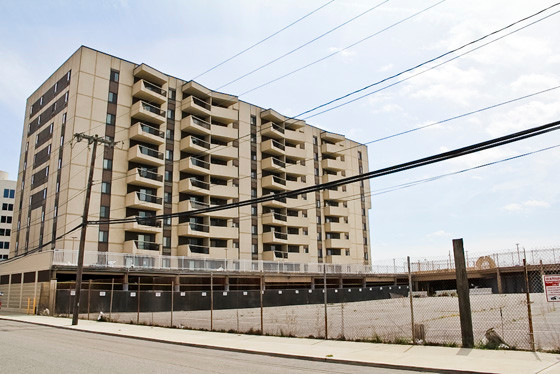Attorney: Long Beach faces stiff fees in lawsuit

The clock is ticking for the City of Long Beach to settle a lawsuit filed by the Manhattan developer Haberman & Haberman.
Each day the case remains unsettled could cost the city $35,000 in penalties, or more than $1 million a month, according to Christopher McGrath, an attorney for the developer.
Long Beach spokesman John McNally said that McGrath was assuming the State Supreme Court would render a judgment against the city that included such a penalty. He also said that McGrath was assuming an unsuccessful appeal by the city of the judge’s decision in the lawsuit.
City Council members spoke two weeks ago about the need to quickly settle the case, which dates back 31 years. On Jan. 11, State Supreme Court Judge Jack Libert found the city liable for $131 million in damages after it revoked a building permit for a luxury condominium project.
McGrath, who represents the developer, Sinclair Haberman, said that a week had passed before he heard from the city. Earlier this week, Long Beach Deputy Corporation Counsel Richard Berrios said he had left a message for McGrath, who returned the call.
“We have a meeting with our outside counsel scheduled for [Tuesday] to discuss the contours of this case and hope to initiate discussions with the Haberman team early next week,” Berrios said in a prepared statement released by the city.
According to McNally, McGrath also may have been unaware that one of Haberman’s other attorneys had discussed ideas for resolving the case with the city’s outside counsel, Robert Spolzino.
In an interview, McGrath said that Haberman has been open to discussions. McGrath noted that the case had been settled when then Corporation Counsel Corey Klein reached an agreement with the developer. In 2014, the City Council ended that agreement, with several board members saying Klein was not authorized to make it. Klein, who is now a Long Beach City Court judge, did not return a call seeking comment.
“Klein got this deal done,” McGrath said. “The council said no.”
McGrath said that Haberman would be open to settling the case, but he added, “They would have to come to the table and give him something he couldn’t refuse. What that would be, I don’t know.”
McGrath noted that because the city has not settled thus far, it could owe about $500,000 in penalties. “I would have thought somebody would have been ringing my doorbell,” McGrath said.
The case, which wound its way through the courts for 15 years, is of extreme importance to the city, given its financial condition. Long Beach’s bond rating is just above junk status.
Last year, the City Council voted unanimously to borrow $4.2 million from Capital One Bank to keep the city afloat through the end of the fiscal year, which ended June 30. Faced with a mounting deficit, Long Beach officials feared the city would not receive enough revenue from beach and parking fees, which typically come in the spring and summer.
City Manager Donna Gayden, who was hired a year ago, has developed a five-year plan to restore financial stability.
“The sooner this gets settled, the better,” said Roy Lester, a former Long Beach Board of Education president who closely follows city politics and government.
“The events giving rise to this case took place in 1989, the year that the Berlin Wall fell,” Libert wrote in his decision. “The wall lasted for 28 years. Litigation related to this matter has lasted for 31 years so far.”
Haberman sought to recoup more than $50 million in damages and profits — as well as interest and legal fees — that he claims he lost when Long Beach’s Zoning Board of Appeals revoked permits to build three oceanfront condominium buildings on Shore Road in 2003, a project that dates back to the 1980s.
Haberman’s attorneys later argued that the city owed them triple the amount they originally requested, based on lost revenue. In 2015, the State Supreme Court granted Haberman a motion for a default judgment after Long Beach did not file a timely response in 2012 to the suit’s amended claim for damages.

 47.0°,
Mostly Cloudy
47.0°,
Mostly Cloudy 




